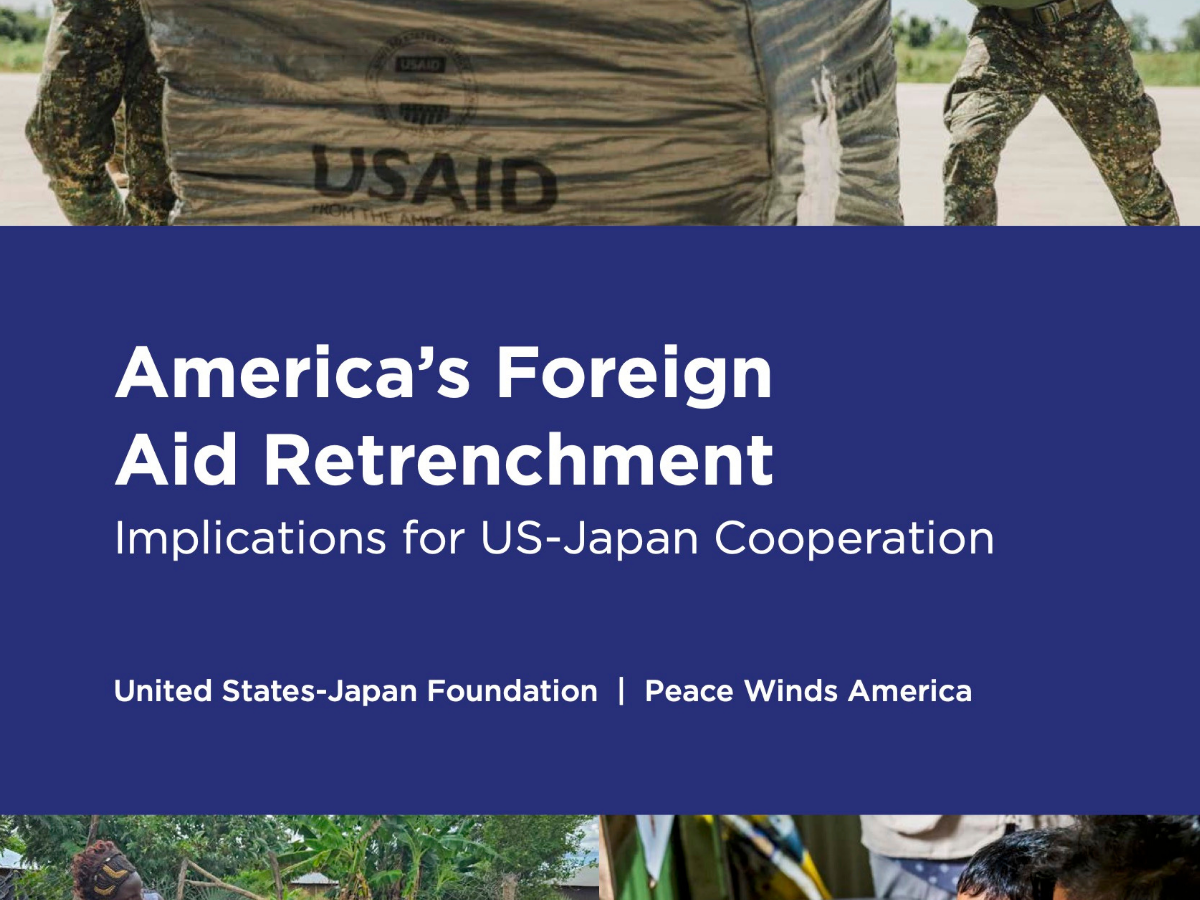Haruto Okabe, a rising professional in Japan’s social-impact sector, has joined the United States-Japan Foundation (USJF) as its new Japan Representative. In this role, he will spearhead the Foundation’s updated Japan strategy, collaborating with civil-society leaders to strengthen the country’s social-impact ecosystem while deepening ties between Japan and the United States.
 "Haruto brings to the Foundation exactly what we're seeking — a deep knowledge of, and passion for, social impact," said Jacob M. Schlesinger, USJF President and CEO. "He has been, over these past few months, a trusted external advisor as we've redirected our organization both to help bolster Japan's nonprofit and philanthropy sectors, and to better connect civil society in our two countries. We're now excited to bring him on full-time."
"Haruto brings to the Foundation exactly what we're seeking — a deep knowledge of, and passion for, social impact," said Jacob M. Schlesinger, USJF President and CEO. "He has been, over these past few months, a trusted external advisor as we've redirected our organization both to help bolster Japan's nonprofit and philanthropy sectors, and to better connect civil society in our two countries. We're now excited to bring him on full-time."
As Japan Representative, Okabe will work closely with Tomoyuki Watanabe, USJF Vice President and Managing Director for Japan and Grants, as he carries out his responsibilities.
Okabe arrives with wide-ranging experience across philanthropy, humanitarian assistance, and management consulting. Prior to joining USJF, he earned a Master in Public Policy from the Harvard Kennedy School, focusing on international relations and philanthropy. His thesis — developed jointly with USJF — combined quantitative and qualitative methods to analyze structural challenges and solutions for Japanese philanthropy.
Before Harvard, he advised governments, businesses, and nonprofits at Bain & Company, a management consultancy, in Tokyo and Dubai, contributing to the firm’s Social Impact Team. Okabe holds a BA in International Relations from the University of Tokyo. Beyond work, Okabe is a partner of Social Venture Partners Tokyo, supporting a Japanese local nonprofit assisting women facing trauma, disabilities, and addiction.
“It is an honor to help steer USJF’s next chapter in Japan,” Okabe said. “Japan’s philanthropic sector has long remained stagnant, even as social challenges like child poverty, gender inequality, and rural decline have deepened. At a time of global turmoil and shrinking international aid and civil society, I believe Japan—with its wealth, democratic resilience, and vibrant civil society—has a unique opportunity to lead. Cross-sector collaboration is the key to social impact, and I will draw on my experience tackling social challenges from both the business sector and academia to make that happen. I look forward to working with leaders in both countries to convert good intentions into lasting impact.”
Founded in 1980, the United States-Japan Foundation has awarded more than $100 million in grants and oversees the U.S.-Japan Leadership Program, a network of over 500 fellows in both countries. The Foundation’s renewed mission harnesses bilateral friendship to address shared challenges at home, in the region, and around the world.
For more information about USJF’s programs and initiatives, visit https://us-jf.org/en/.




